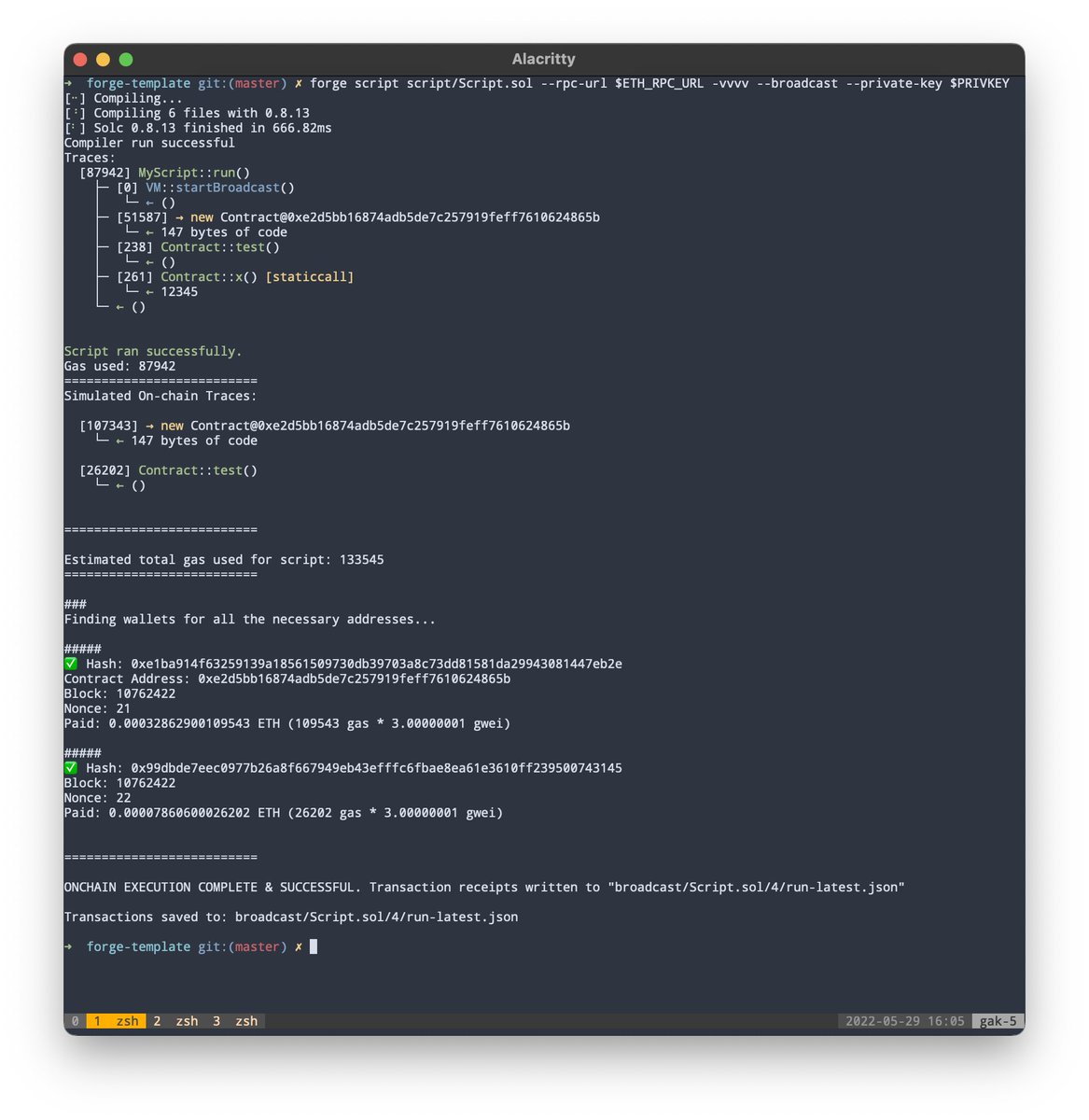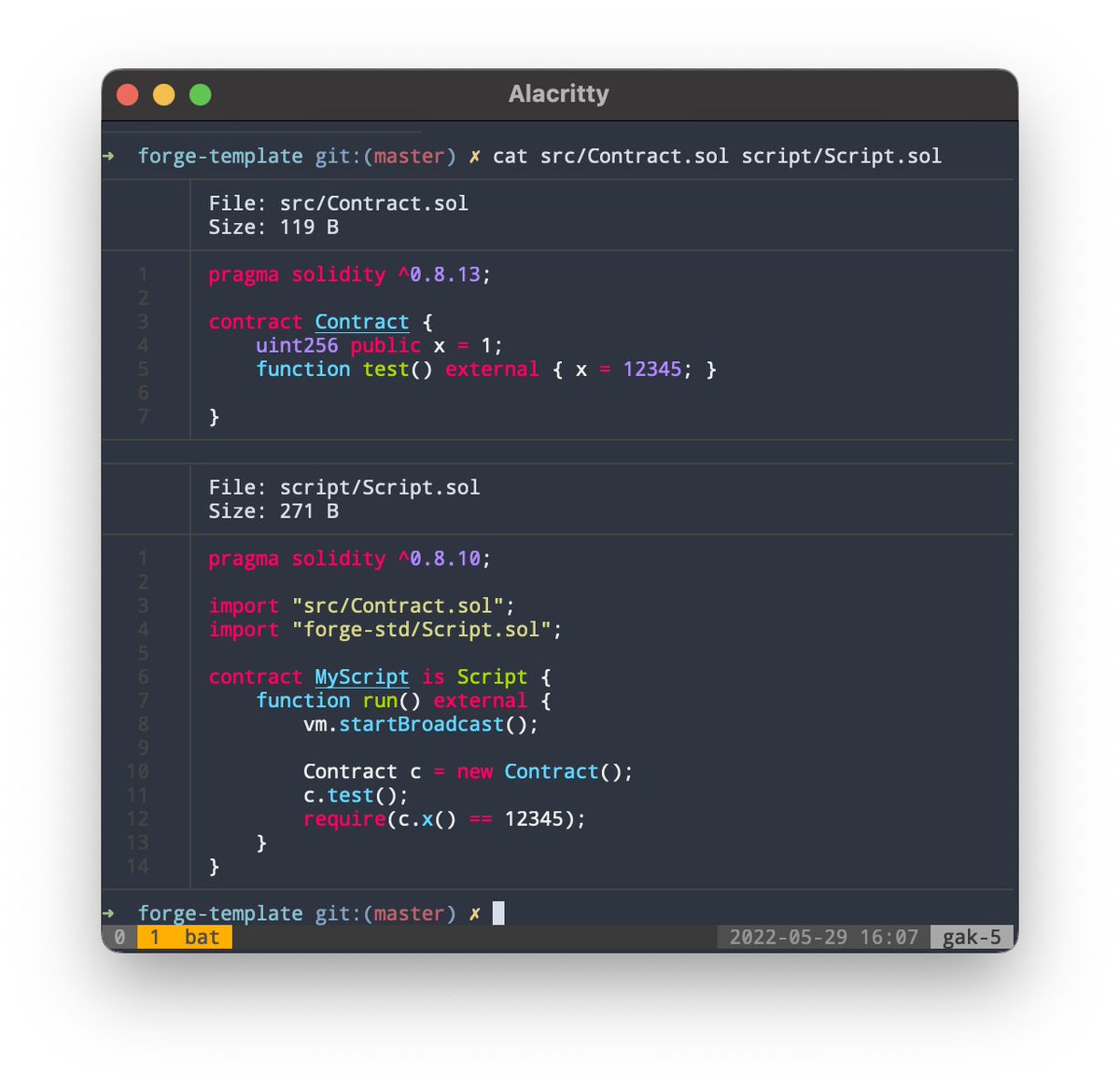
6 useful projects I’d (selfishly) love to see built during #ETHDenver 🧵
OP-Reth
The OP Stack implements an Optimistic Rollup design that aims to be as close to Ethereum. See @protolambda's diff here: op-geth.optimism.io
Would love to see an implementation in Reth: github.com/paradigmxyz/re…
@refcells is already working on this, reach out
The OP Stack implements an Optimistic Rollup design that aims to be as close to Ethereum. See @protolambda's diff here: op-geth.optimism.io
Would love to see an implementation in Reth: github.com/paradigmxyz/re…
@refcells is already working on this, reach out
.@wagmi_sh x Foundry full-stack hacks
Wagmi is quickly rising to be the #1 Web3 frontend library. The Wagmi CLI allows blazing-fast iteration on full-stack hackathon projects w/ its Foundry integration.
e.g
github.com/d1onys1us/dapp…
github.com/ethereum-optim…
Wagmi is quickly rising to be the #1 Web3 frontend library. The Wagmi CLI allows blazing-fast iteration on full-stack hackathon projects w/ its Foundry integration.
e.g
github.com/d1onys1us/dapp…
github.com/ethereum-optim…
https://twitter.com/wagmi_sh/status/1620097176738357248
ethabi using ruint
We want to get replace primitive-types in all our Rust code with @recmo's Ruint. The biggest blocker here is replacing ethabi's internal types with Ruint.
github.com/rust-ethereum/…
github.com/recmo/uint/
We want to get replace primitive-types in all our Rust code with @recmo's Ruint. The biggest blocker here is replacing ethabi's internal types with Ruint.
github.com/rust-ethereum/…
github.com/recmo/uint/
Ganache-UI but for Anvil
This used to be among my favorite UIs back in the day. See some ideas on what you can build in addition to a vanilla Anvil UI in the second pic.
github.com/trufflesuite/g…
book.getfoundry.sh/anvil/

This used to be among my favorite UIs back in the day. See some ideas on what you can build in addition to a vanilla Anvil UI in the second pic.
github.com/trufflesuite/g…
book.getfoundry.sh/anvil/


ABI -> UI generation.
No big expectations here. Would like to see things like AMM/Lending/NFT/... styleless React components which abstract away common on-chain operations.
I don't think any of the existing Etherscan-esque buttons w/ inputboxes cut it, need to be opinionated
No big expectations here. Would like to see things like AMM/Lending/NFT/... styleless React components which abstract away common on-chain operations.
I don't think any of the existing Etherscan-esque buttons w/ inputboxes cut it, need to be opinionated
Implementation of MEV Share
This was proposed recently, it is feasible but not for newbies (+ maybe some FB ppl on it alrd), come find me to route to the rihgt ppl / spec out together if you're interested
This was proposed recently, it is feasible but not for newbies (+ maybe some FB ppl on it alrd), come find me to route to the rihgt ppl / spec out together if you're interested
https://twitter.com/bertcmiller/status/1625878260025380865?s=20
Fin. If you want to work together on any of the above, reach out / come find me; happy to mentor/guide in any way.
Bonus points for anything written in @rustlang using ethers-rs, Foundy, or Reth as libraries. Happy hacking.
Bonus points for anything written in @rustlang using ethers-rs, Foundy, or Reth as libraries. Happy hacking.
• • •
Missing some Tweet in this thread? You can try to
force a refresh








